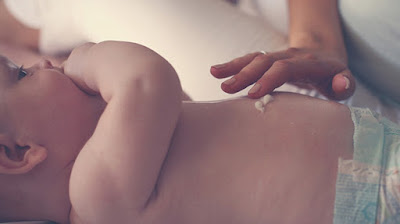Search This Blog
The blog aims to educate and knowledge sharing portal on pediatrics and the miscellaneous disease.
Featured
- Get link
- X
- Other Apps
Treating psoriasis in children
Currently, there is no cure for psoriasis. Treatment focuses on easing symptoms when they occur and helping prevent or reduce the severity of flare-ups.
TOPICAL TREATMENTS
Topical treatments are the most commonly prescribed treatment for psoriasis. They can help reduce symptoms of mild to moderate psoriasis. Topical treatments include medicated and moisturizing:
- Ointments
- Lotions
- Creams
- Solutions
Help your child remember to apply the treatment by setting electronic reminders or scheduling them at times of day that don't fluctuate, such as right before bed and right after waking up.
LIGHT THERAPY
Both natural and artificial lights can help ease symptoms of psoriasis. There are several newer options such as lasers and medications activated by special lights. You should not begin using light therapy without first consulting your child's doctor. Too much exposure to light can actually make symptoms worse.
If your doctor recommends natural sunlight, help your child get that extra dose by taking a walk together as a family or playing in the backyard after school.
ORAL OR INJECTED MEDICATIONS
For moderate to severe cases of psoriasis in children, your child's doctor may prescribe pills, shots, or intravenous (IV) medications. Some of these medications can cause serious side effects, so it's important to understand what you may face before the treatments begin. Because of possible serious side effects, this type of treatment may be reserved until your child is older or used only for short periods of time.
LIFESTYLE CHANGES
Managing triggers may be one of your child's best defenses against psoriasis. Exercising, getting adequate sleep, and eating a balanced diet will help keep your child's body healthy. A healthy body may have fewer and less severe periods of disease activity. In addition, keeping your child's skin clean and moisturized can help reduce skin irritation, which also reduces psoriasis flares.
Help encourage your child and everyone in your family to get healthier by starting a friendly family competition. Keep track of who completes the most steps each day, or if weight loss is a concern, track the percentage of weight loss over time.
TREATMENT PLANS
Your child's doctor may try one of these treatments alone, or they may combine them. If the first treatment doesn't work, don't lose heart. You, your child, your child's doctor can work together to find medications or combinations of treatments that help ease your child's symptoms.
Popular Posts
Diagnosis and treatment of Umbilical Hernia
- Get link
- X
- Other Apps
Overview and symptoms of Turner syndrome
- Get link
- X
- Other Apps




Comments
Post a Comment